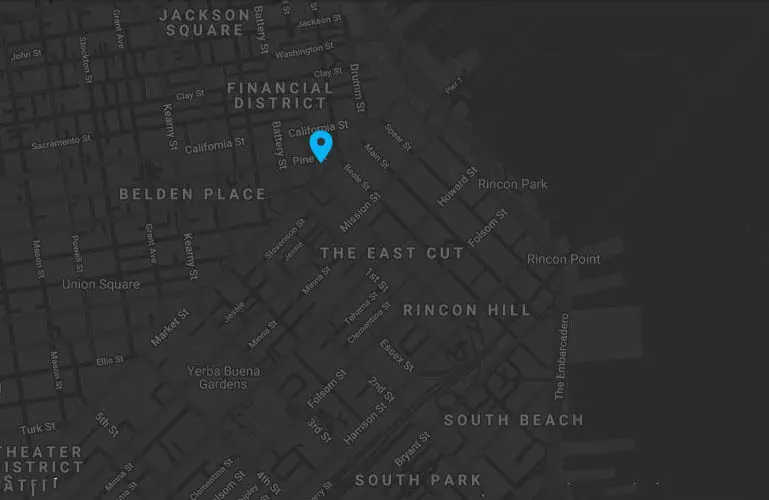Why Website Maintenance is Crucial for Modern Businesses
While launching a visually appealing website is crucial, its journey doesn’t end there. Websites are dynamic entities, susceptible to changes in technology, security threats, and search engine algorithms. Website maintenance encompasses a range of ongoing activities designed to ensure your website remains:
- Secure: Protecting your website and user data from cyber threats is paramount. Regular updates to software, plugins, and security certificates are crucial to patch vulnerabilities and prevent malicious attacks.
- Functional: Over time, websites can accumulate clutter and outdated code, leading to slow loading speeds, broken functionalities, and a frustrating user experience. Regular maintenance ensures your website functions smoothly across various devices and browsers.
- Optimized: Search engine algorithms are constantly evolving, and websites that are not regularly updated can fall behind in search rankings. Website maintenance practices like keyword optimization, content updates, and backlink building contribute significantly to improving your website’s visibility in search results.
- Compliant: Many businesses have legal and ethical obligations regarding website accessibility and data privacy. Regular maintenance ensures your website adheres to necessary compliance standards, mitigating potential legal and reputational risks.
Beyond these fundamental aspects, website maintenance also plays a vital role in:
- Enhancing user experience: Regular maintenance tackles broken links, outdated information, and malfunctioning elements, ensuring visitors have a seamless and positive experience on your website.
- Maintaining brand consistency: Consistent updates ensure your website reflects your brand identity accurately, portraying a professional and trustworthy image to visitors.
- Boosting conversions: A well-maintained website, with optimized content and functionalities, is more likely to convert visitors into leads or customers.
- Saving you money: Ignoring website maintenance can lead to costly problems down the line, such as security breaches, data loss, and decreased search engine rankings. Regular maintenance is a preventive measure that helps save money in the long run.
Essential Website Maintenance Activities
Website maintenance encompasses a variety of tasks, depending on the specific needs of your website and business. Here are some key activities to consider:
- Software and plugin updates: Regularly update website software, plugins, and themes to address security vulnerabilities and ensure compatibility with the latest versions of web browsers and operating systems.
- Security audits and monitoring: Conduct regular security audits to identify and address potential vulnerabilities. Additionally, consider implementing security monitoring tools to proactively detect and respond to threats.
- Content updates and optimization: Regularly update your website content with fresh information, engaging blog posts, and relevant news articles. Utilize keyword research and optimization techniques to improve your website’s relevance and search engine ranking.
- Broken link and functionality checks: Regularly check for broken links, outdated information, and malfunctioning pages on your website. Fix these issues promptly to ensure a seamless user experience.
- Website speed optimization: Monitor and optimize your website’s loading speed. This includes optimizing images, minifying code, and utilizing caching mechanisms to ensure your website loads quickly and efficiently.
- Backups and disaster recovery: Regularly back up your website data to ensure you can easily recover your website in case of unforeseen circumstances like server crashes or security breaches.
- Analytics and reporting: Utilize website analytics tools to track website traffic, user behavior, and conversions. Analyze this data to identify areas for improvement and make data-driven decisions to optimize your website performance.
- Mobile-friendliness testing: Ensure your website is mobile-friendly and responsive across various devices, as a significant portion of users access websites through smartphones and tablets.
- Compliance checks: Regularly review and update your website to comply with relevant accessibility and data privacy regulations.
Choosing the Right Website Maintenance Approach
The ideal website maintenance approach can vary depending on the size and complexity of your website, your technical expertise, and your budget. Here are some possible options:
- Do-it-yourself (DIY): If you have the technical knowledge and resources, you can manage website maintenance tasks yourself. However, this requires significant time and effort commitment.
- Hiring a freelance developer: Hiring a freelance developer can offer a cost-effective option for basic maintenance tasks. However, it’s crucial to choose a developer with relevant experience and expertise.
- Partnering with a web design agency: Partnering with a reputable web design agency like DEEPBLUE can provide comprehensive website maintenance solutions, including security monitoring, content updates, SEO optimization, and performance optimization.


